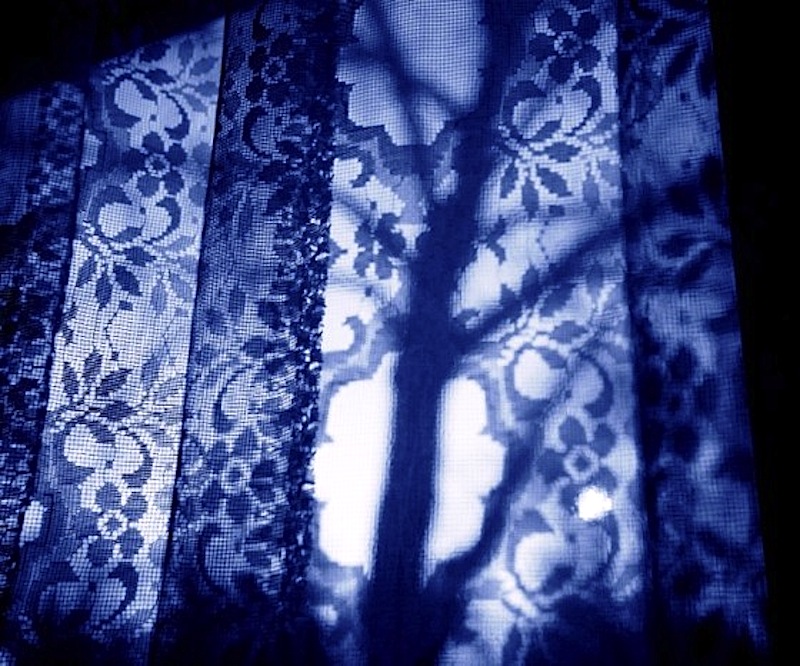
A friend was telling me about a time when she was at school and had to produce a piece of descriptive writing for homework. She had no idea what to write about so kept on putting it off. Eventually it came to the evening before the homework was due and the piece still remained unwritten.
That night she lay restlessly awake in bed, huddled tight beneath the blankets, hugging her knees, looking into the cold, pale moon peering in at her through the curtains, wondering what ridicule and punishment she would receive the next day for her failure to complete the task. Tears seeped into the pillow and she felt increasingly anxious.
Woken by his daughter’s distress, her father came into the room to see what was the matter. She told him everything and they went downstairs to work on the piece together. But despite her father’s best intentions he too found the task overwhelming. They both looked down at the terrifying blank page before them demanding to be filled.
In the end, after much sweat and many more tears, they managed to scrape something passable together just to get through the whole misery unscathed. And as she described this old memory to me in vivid detail, still deeply moved by the kindness, concern and understanding her father had shown her, it struck me that this was the real story, rather than the one they had sweated to cobble together (which incidentally she could no longer recall). But she had never even thought to write about her present experience, assuming it to be of no value—just a boring, painful moment in need of escaping—automatically diving into thinking to come up with something ‘worthy’ and ‘acceptable’.
This is exactly what we do in life all the time—overlook our current experience in favour of the abstract conjurations of thought. As John Lennon put it, “Life is what happens to you while you’re busy making other plans.”
So what do we discover when we simply STOP?
Initially it may feel like an unbearable ‘blankness’ compared to our usual rampant thinking and doing. There may be an incredible urge to race off into the next thought or activity. But what happens when we just stay here a while, and become a little more familiar with ‘blankness’? We start to notice that, without any effort whatsoever, sounds are happening, breathing is happening, there are pulsing, tingling sensations and vibrations, smells and tastes, feelings, colours and textures—a continually shifting kaleidoscope of perceptions. That ‘blankness’, that ’empty nothing’ is utterly full of everything, is teeming with aliveness. Without our thought frame to define, categorise and partition the experience up into ‘me’ and ‘not me’, we are this entire, edgeless slab of life.
And there are thoughts arising and dissolving too. Maybe thoughts that agree or disagree with these words, that may judge, resist or compare, that may feel angry and offended and rush to protect some idea about who we are—all passing through like leaves floating on the surface of a river.
In clearly seeing life as it is, in clearly seeing all the mental confusion and not needing anything to change, change happens; more and more of the old beliefs join the procession of flotsam and jetsam and are carried away by the current.
It’s in this simple opening to life that we shift from feeling restless, anxious and afraid, to relaxing into the joyous appreciation of our natural wonder.



